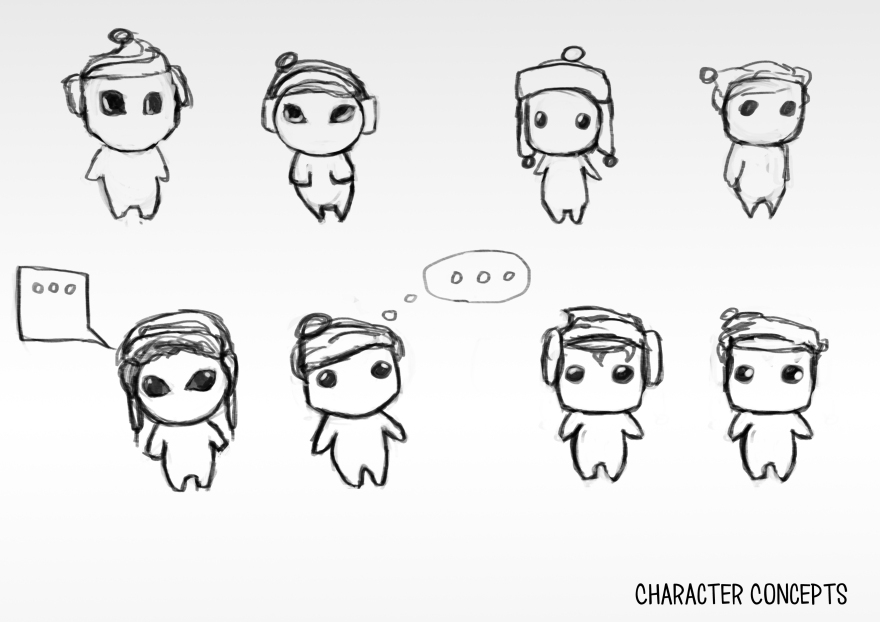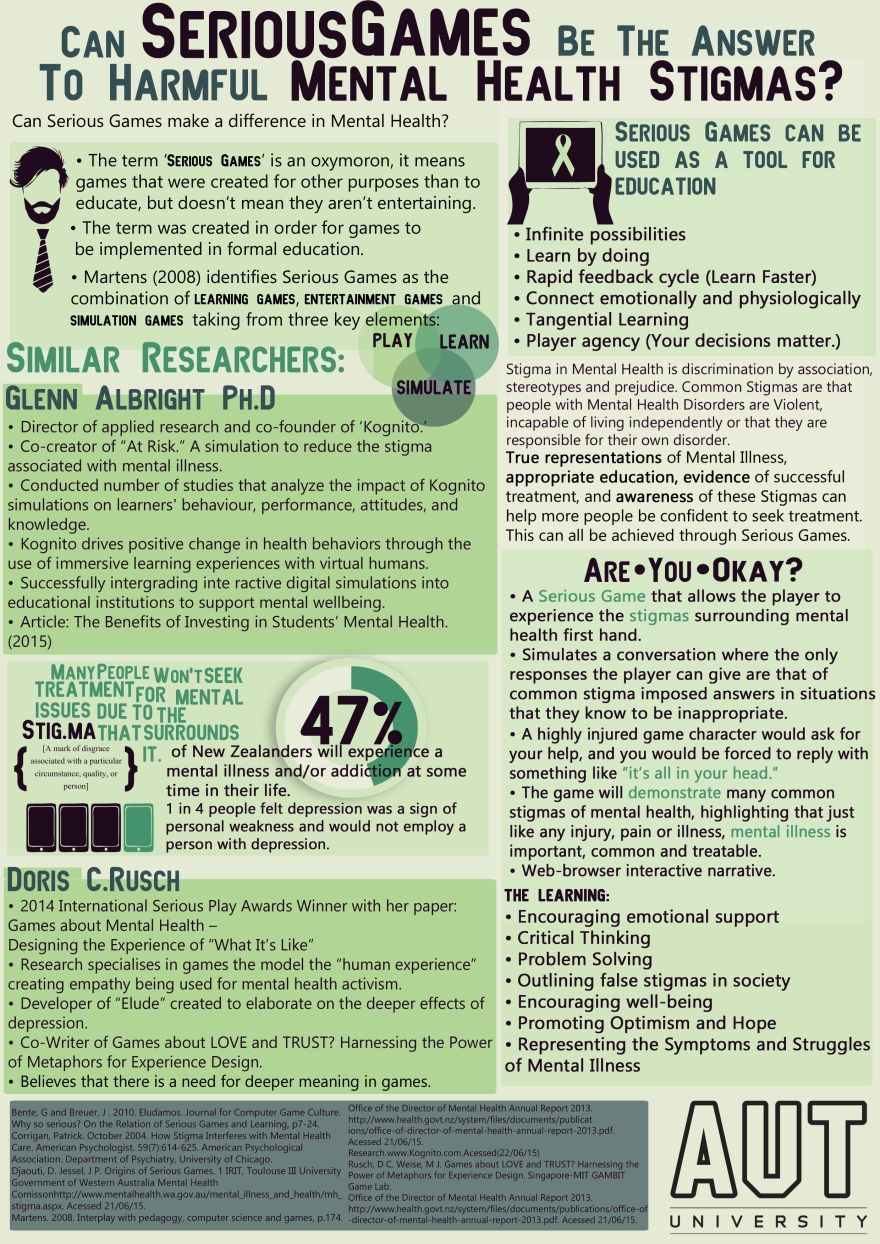Month: June 2015
Research Conclusion
My question is… Can Serious Games be the Answer to Harmful Mental Health Stigmas?
Serious Games can be used as a Tool for education-
- Infinite possibilities
- Learn by doing
- Rapid feedback cycle (Learn Faster)
- Connect emotionally and physiologically
- Tangential Learning
- Player agency (Your decisions matter.)
I wanted to create a Game that can take advantage of the key aspects of design that are available through serious games to benefit a cause for well-being.

The Stigma Surrounding Mental Health – Game Based Learning
One of the reasons why people avoid Mental Health services when they need them is the Stigma that surrounds it. Many people face the wrong ‘label’ of mental illness and the harm it brings. The Stigma has two kinds of effects, the effect on your self-esteem and the effect on social opportunities. Patrick Corrigan in “The American psychologist” journal says
“recommendations are reviewed for ongoing research that will more comprehensively expand understanding of the stigma–care seeking link. Implications for the development of antistigma programs that might promote care seeking and participation are also reviewed”
If within psychology there is a gap for a system to efficiently decrease the Stigma surrounding Mental Health, then I believe Game Based Learning or Serious Gaming may be the answer.
Continue reading “The Stigma Surrounding Mental Health – Game Based Learning”
Doris C. Rusch
GAME DEVELOPER AND RESEARCHER, FOCUSING ON SOCIAL IMPACT GAMES, EXPERIENCE DESIGN, PLAY AND MENTAL HEALTH ACTIVISM.
Some of her research and development work includes:
Doris C. Rush was a Assistant Professor for game design at DePaul University in Chicago. Working on the paper “Games about Mental Health – Designing the Experience of “What It’s Like”” The paper consists of designing four short games about various mental illnesses. The aim of each game is to increase understanding, empathy and eliminate stigma and isolation.The work received a silver award in the 2014 International Serious Play Awards.
ARTICLE: http://www.fdg2014.org/papers/fdg2014_demo_10.pdf Games: http://fortherecords.org/
In her Post Doctoral work at GAMBIT Game Lab she co developed “Elude” a game created to elaborate on the deeper effects of depression. The goal with making the game was to raise awareness and understanding for people surrounding anyone with a Mental Illness. The game hopes to remove the stigma that depression is simply ‘sadness’ and teach that it is more of a complex hopelessness feeling, with a failure to be able to connect with the outside world.
New Zealand Mental Health Statistics
KEY FINDINGS:
- About 47% of New Zealanders will experience a mental illness and/or addiction at some time in their life.
- 1 in 5 people effected within one year.
- Approximately 500 New Zealanders die by suicide every year.
- 40% of those were diagnosed with a mental health disorder.
- In an Australia study Nearly 1 in 4 people felt depression was a sign of personal weakness and would not employ a person with depression.
- One in 5 said that if they had depression they wouldn’t tell anyone.
Kognito – Creators of “At-Risk”
On the Games for Change website I came across a game with the similar objective of removing the stigmas of Mental Health. “At Risk” is a simulation game that teaches educators about Mental Health and Mental Health Stigmas. So I looked further into its developer Kognito.
Kognito was established in 2003 by co-founders Ron Goldman, CEO and Glenn Albright, Ph.D., director of applied research. Based in New York Kognito’s team is made up of 35 full-time leading experts, psychologists, instructional designers, graphic designers, marketing and sales professionals, researchers and software engineers.
Kognito focuses on immersive learning experiences that drive positive change in health behaviors. They have have created several award winning games based on academic science-proven research and are implemented in community colleges, public and private colleges, universities and online institutions.
Twine: HTML, CSS and Java Script.
Twine: Conditions, Datamaps and Dynamic Links.
So far I’ve learnt the basics of navigating through Twine. How to create new passages, how to record the amount of times the passage is visited, how to send a player back and forth through the game, how to display a text only once and how to create an inventory.
Continue reading “Twine: Conditions, Datamaps and Dynamic Links.”















